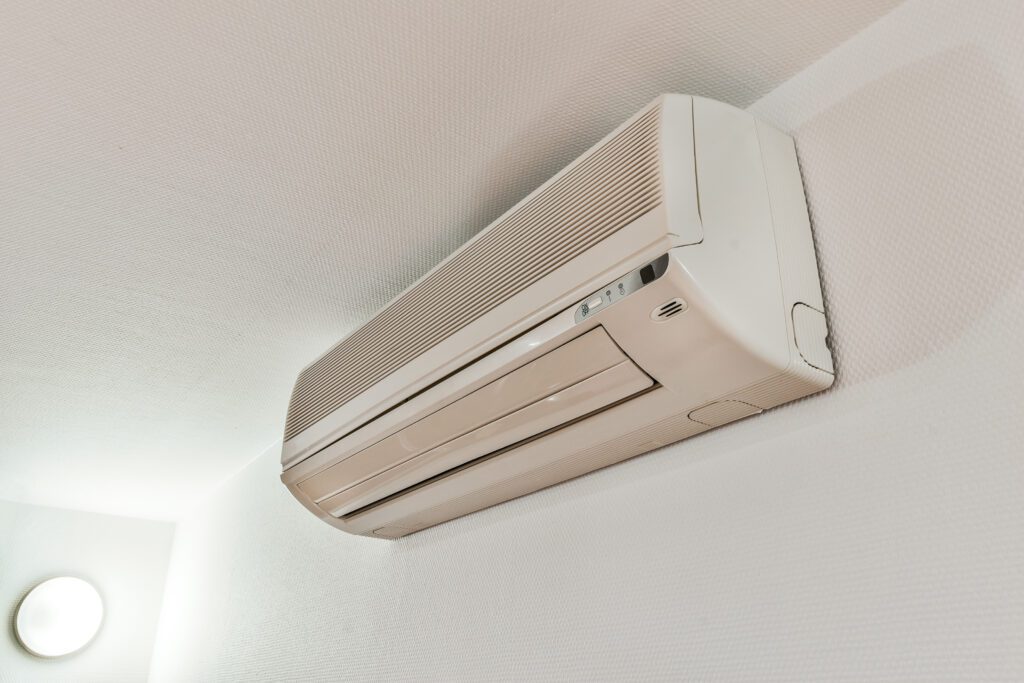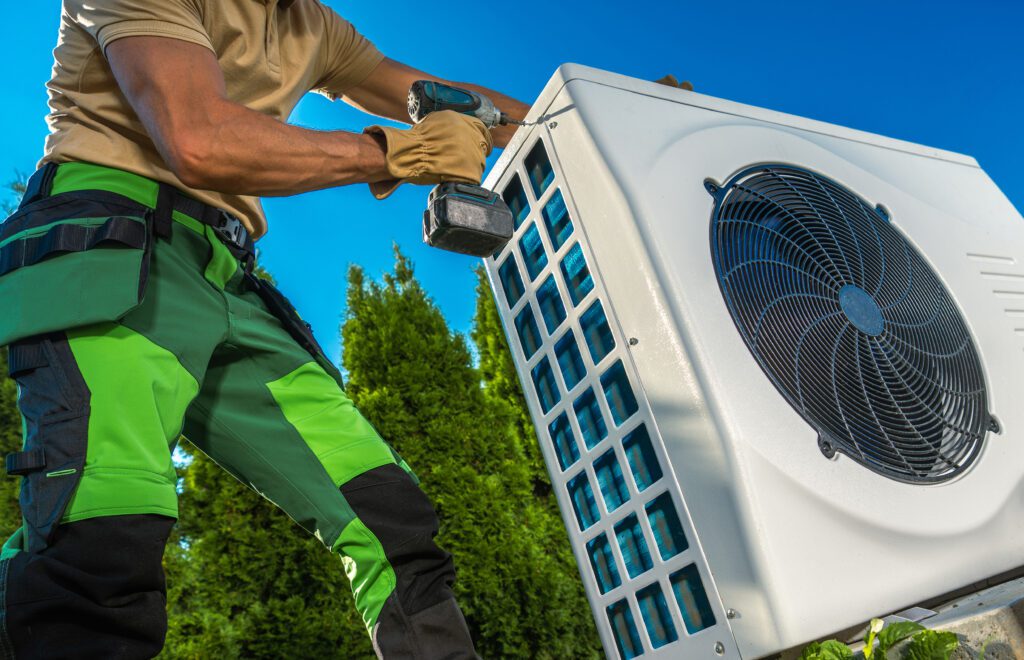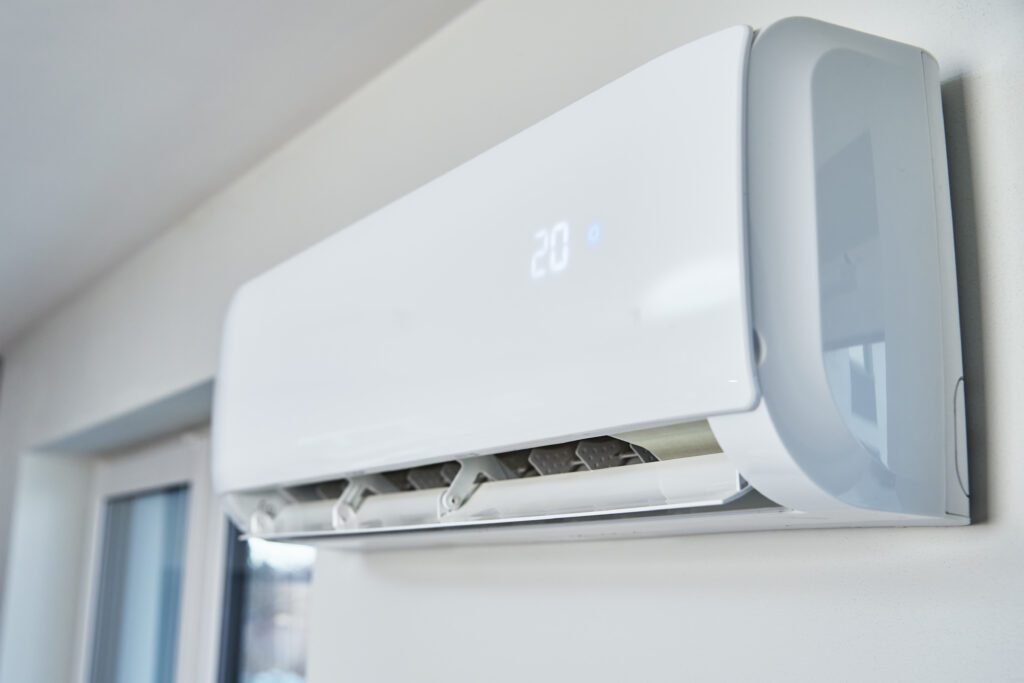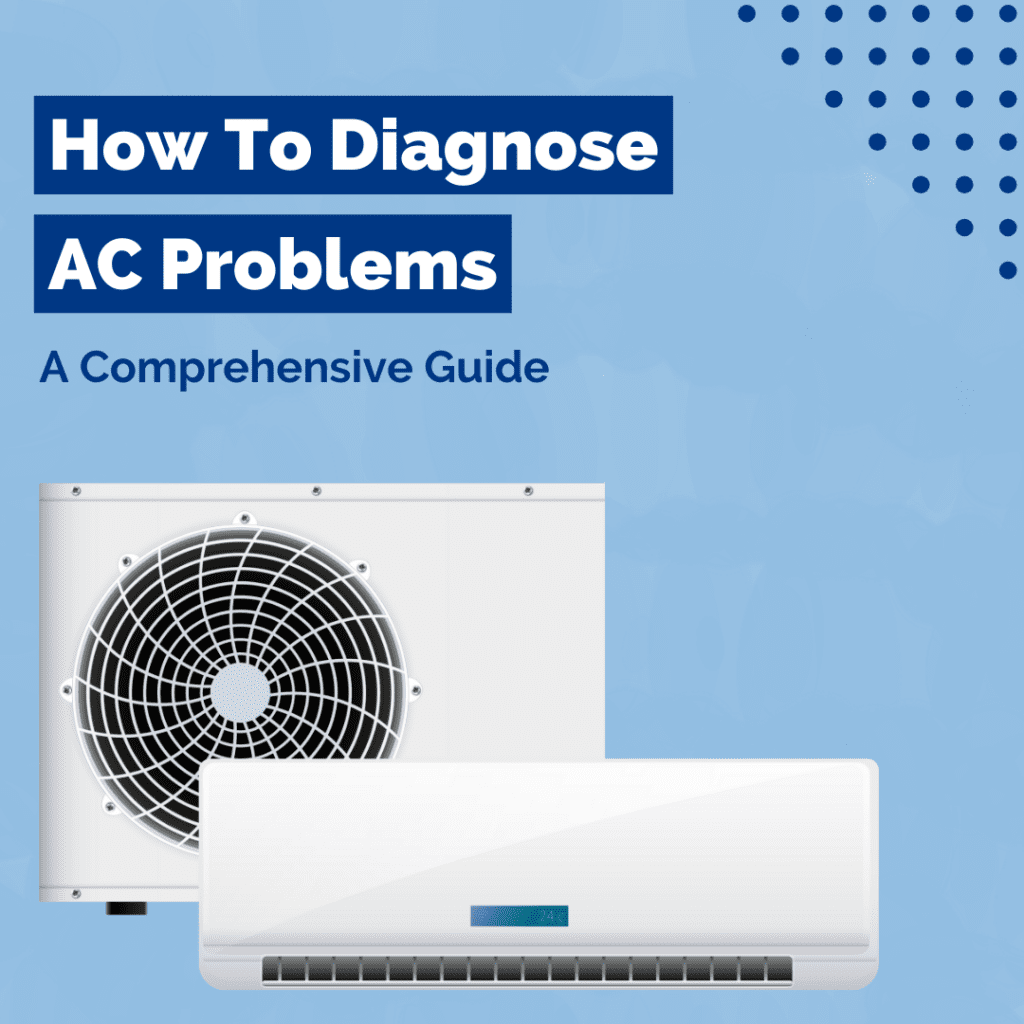Do you ever wonder why your air conditioner (AC) is not working as efficiently as before? Or why it’s making strange noises? AC problems can be frustrating, but how do you diagnose AC problems? Well, diagnosing problems with your AC doesn’t have to be a daunting task. In this comprehensive guide, we will break down the process of diagnosing AC problems step by step, helping you understand the basics of AC systems, common problems, and their symptoms, as well as providing preventive measures to keep your AC in top shape.
Understanding the Basics of AC Systems
Before diving into diagnosing AC problems, it’s important to have a basic understanding of how AC systems work and their key components. Having this knowledge can empower you to make informed decisions when it comes to maintaining and troubleshooting your AC system.
When it comes to the components of an AC system, it’s crucial to recognize the vital role each part plays in the overall functionality of the system. The compressor acts as the heart of the system, pumping refrigerant through the system to facilitate the cooling process. The condenser then releases the heat absorbed from the indoor air, while the evaporator cools the air by removing moisture and heat. The expansion valve regulates the flow of refrigerant, ensuring optimal performance. All these components work in harmony to provide you with a comfortable indoor environment.
Components of an AC System
An AC system is a complex network of components that work together to cool and dehumidify the air in your home. These components include the compressor, condenser, evaporator, expansion valve, and refrigerant. Each component plays a critical role in the functioning of the system.
Moreover, understanding the intricacies of each component can give you a deeper appreciation for the engineering marvel that is an AC system. From the physics of refrigeration to the mechanical precision required for efficient operation, AC systems are a testament to human innovation and ingenuity.
How AC Systems Work
AC systems rely on the principle of refrigeration to cool the air. They extract heat from the indoor air and release it outside, creating a cool and comfortable environment inside your home. Understanding this process will help you identify potential issues and diagnose problems more effectively.
By grasping the fundamental principles of heat transfer and thermodynamics that underpin AC technology, you can gain insight into the inner workings of your system. This knowledge can be invaluable when communicating with HVAC professionals or attempting DIY repairs. Ultimately, a deeper understanding of how AC systems operate can lead to improved efficiency, longevity, and performance of your cooling system.
Common AC Problems and Their Symptoms

Now that you have a better grasp on the basics, let’s explore some common AC problems and the symptoms associated with them.
When it comes to your air conditioning system, being aware of potential issues can save you time and money in the long run. Let’s delve deeper into a few more common AC problems that you may encounter.
Inadequate Cooling
One of the most common AC problems is inadequate cooling. If your AC is blowing warm or inconsistent air, it could be due to a variety of issues like refrigerant leaks, compressor problems, or clogged air filters. Pay attention to any changes in the cooling performance of your AC.
Additionally, inadequate cooling can also be caused by improper insulation in your home, which can lead to cool air escaping and warm air entering. Ensuring that your home is properly insulated can help your AC system work more efficiently.
Strange Noises from the AC
If you hear loud, unusual noises coming from your AC unit, it’s a clear indication that there may be an underlying problem. Banging, grinding, or squealing sounds could be caused by faulty belts, motor issues, or loose parts. Don’t ignore these noises as they could indicate a more serious issue.
Moreover, rattling noises could be a sign of loose components within the AC unit, while buzzing sounds might indicate electrical issues. It’s important to address these noises promptly to prevent further damage to your system.
Leaking or Moisture Issues
Excessive condensation or leaks around your AC unit can be a sign of a problem. Leaking refrigerant, clogged drain lines, or a malfunctioning condensate pump can result in moisture buildup, which can lead to water damage and mold growth. Address these issues promptly to avoid further damage.
Furthermore, moisture issues can also be exacerbated by poor ventilation in your home, which can trap humidity and create a breeding ground for mold and mildew. Proper ventilation is key to maintaining a healthy indoor environment and preventing moisture-related AC problems.
Steps to Diagnose AC Problems

Now that you are familiar with common AC problems, let’s walk through the steps to diagnose and troubleshoot these issues. Proper diagnosis is crucial in ensuring your air conditioning system operates efficiently and effectively.
When your AC system is not functioning as it should, it can be frustrating and uncomfortable, especially during hot summer months. By following these steps, you can identify and address any issues promptly, restoring comfort to your home.
Preliminary Checks
Start by checking some basic things before moving on to detailed inspection. Ensure that the thermostat is set to the correct temperature and the circuit breaker for the AC unit is not tripped. Additionally, check if the air filter is clean and free of debris. A clogged air filter can restrict airflow and cause cooling issues. Proper airflow is essential for the efficient operation of your AC system.
Moreover, inadequate airflow can lead to various problems, including frozen coils and reduced cooling capacity. Regularly replacing or cleaning your air filter can improve the overall performance of your air conditioning unit and extend its lifespan.
Detailed Inspection
If the preliminary checks did not resolve the problem, it’s time to perform a more detailed inspection. Inspect the outdoor unit for any visible damage or obstructions. Clean the coils and remove any debris that may be affecting the airflow. Check the indoor unit for any signs of leaks or moisture. Inspect the electrical connections for loose or damaged wires. Ensuring all components are in good condition is essential for the proper functioning of your AC system.
Furthermore, regular maintenance of your air conditioning system can prevent potential issues and prolong its lifespan. Simple tasks such as cleaning the coils, checking for leaks, and tightening electrical connections can significantly improve the efficiency and performance of your AC unit.
Using Diagnostic Tools
If the problem remains unresolved, using diagnostic tools can help pinpoint the issue more accurately. HVAC technicians have specialized equipment to measure refrigerant levels, test electrical components, and check system pressures. Consider contacting a professional if you’re not comfortable using these tools yourself. Professional diagnosis and repair can ensure that your AC system is operating at its best, keeping your home cool and comfortable.
When to Call a Professional

While some AC problems can be diagnosed and repaired by homeowners, there are instances when it’s best to call a professional HVAC technician.
Complex AC Issues
If the problem is beyond your expertise or requires specialized knowledge, it’s advisable to seek professional help. Complex issues like compressor failures, refrigerant leaks, or motor malfunctions may require professional diagnosis and repair.
Safety Concerns in DIY Diagnostics
Working with AC systems involves electrical components and potentially hazardous refrigerants. If you are not familiar with handling these substances or lack the necessary tools, it’s safer to leave the diagnosis and repairs to professionals.
Preventive Measures for AC Problems

Prevention is always better than cure when it comes to AC problems. By following some simple preventive measures, you can prolong the life of your AC system and minimize the chances of encountering major issues.
Regular Maintenance
Schedule regular maintenance for your AC system to ensure it is clean, properly lubricated, and operating efficiently. Regular maintenance includes tasks like cleaning or replacing air filters, checking refrigerant levels, and inspecting electrical connections. This proactive approach can help prevent many common AC problems.
Early Detection of Issues
Be attentive to any changes in your AC’s performance and address them promptly. Regularly inspect your AC unit and look for signs of leaks, strange noises, or reduced cooling capabilities. Early detection can prevent minor issues from escalating into major problems.
By following this comprehensive guide, you now have the knowledge and tools to diagnose common AC problems. Remember that safety should always be a priority, and if you are uncertain or uncomfortable with DIY diagnostics, it’s best to consult a professional. Regular maintenance and preventive measures can go a long way in keeping your AC running smoothly and efficiently, ensuring your comfort during the hot summer months.



